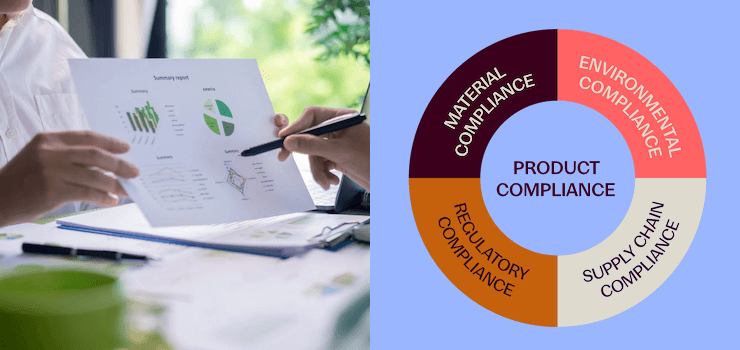The industry-driven debate on digital battery passports as enablers of a circular economy has gained increased momentum. To provide a research-guided perspective, the Christian-Doppler Laboratory for Sustainable Product Management at the University of Graz, in cooperation with IPOINT and AVL List GmbH, spotlighted the information needs and requirements that digital battery passports must fulfil in a landmark paper. This publication represents one of the first systematic analyses of data requirements for a Digital Battery Passport (DBP) in the global battery value chain.
By Katharina Berger, Josef-Peter Schöggl and Rupert J. Baumgartner
What Is a Digital Battery Passport?
Digital Battery Passport (DBP) is a standardized digital record that stores and provides transparent data on the composition, carbon footprint, performance, and end-of-life handling of batteries. It is designed to ensure traceability across the supply chain, support sustainable production, and improve recycling and resource efficiency.
The recent University of Graz paper, co-funded by IPOINT and AVL, emphasizes that such a passport is more than a compliance tool: it is a value driver enabling industry actors to meet requirements of the EU Battery Regulation and global sustainability goals. The full paper can be read with open access here: https://doi.org/10.1016/j.jclepro.2022.131492

Figure 1: Overview digital battery passport concept (Source: Katharina Berger, Josef-Peter Schöggl and Rupert J. Baumgartner, 2022)
From Research to Regulation: The EU Battery Regulation
The EU Battery Regulation (EU 2023/1542) requires a Battery Passport for industrial batteries above 2 kWh, electric vehicle (EV) batteries, and light means of transport (LMT) batteries starting in 2027. This marks a major regulatory milestone in Europe, where data transparency, carbon footprint reporting, and circularity are becoming mandatory.
For a deep dive into the regulation and its impact on manufacturers, importers, and recyclers, read our dedicated article: EU Battery Regulation: Key Rules for Manufacturers & Recyclers
Digital Product Passports and the Battery Passport Connection
The Battery Passport is closely linked to the broader initiative of the Digital Product Passport (DPP), which aims to provide consistent product information across industries. While the DPP will be rolled out for multiple product groups, the battery sector is one of the first where implementation becomes reality.
The research from the University of Graz highlights that a Digital Battery Passport must include not only technical specifications and materials data, but also sustainability information such as recycled content and environmental performance.
Concept and Use Cases of the Digital Battery Passport
In their paper, the University of Graz team — supported by iPoint and AVL — presented a conceptual framework for the Digital Battery Passport. It includes four main information categories and 54 data points relevant to stakeholders along the battery value chain.
- The manufacturer: use case “value chain development”
This use case entails the identification of sustainability hot spots along the value chain, enabling the manufacturer to take up measures to counter said hot spots, and minimize negative environmental and social impacts throughout the product life cycle. - The EV(B) user: use case “the best EV(B)”
As sustainability related issues becoming more important to customers, and batteries are often linked to such issues (e.g., due to them containing critical raw materials, such as cobalt), this use case concerns a consumer who wants to buy a vehicle which contains a battery with a decent environmental and social sustainability performance. - The recycler: use case “support of recycling efforts”
As the ramp up of recycling capacities is to be expected to be able to deal with the volumes of spent batteries, recycler may derive utility from a digital battery passport if it were able to support their recycling processes (e.g., by provision of disassembly instruction, information about battery chemistries, etc.). - The regulator body: use case “facilitating sustainable product management efforts”
As regulatory bodies are interested in enabling the transition towards sustainable development, the introduction of respective regulatory frameworks is required. In this use case, regulatory bodies may derive useful information which enables them to introduce new legislation, as well as adapt existing ones for this purpose.

Figure 2: Selection of use cases of a digital battery passport (Source: Katharina Berger, Josef-Peter Schöggl and Rupert J. Baumgartner, 2022)
Data Gaps and Future Requirements
Despite progress, significant data gaps remain across global battery supply chains. As highlighted by the University of Graz paper, supported by iPoint and AVL, the willingness of stakeholders to share data is critical to ensure the passport’s success.
The next steps include:
- Developing common data standards to ensure interoperability.
- Strengthening trust in data sharing across manufacturers, suppliers, and recyclers.
- Aligning with ESG reporting requirements and corporate sustainability strategies.
By addressing these gaps, the Digital Battery Passport can fully support the transition to a circular economy and enable long-term competitiveness for the industry.
From Product Stewardship to Extended Producer Responsibility

For battery manufacturers, importers, and recyclers, the EU Battery Regulation introduces far-reaching obligations under the principle of extended producer responsibility. Meeting these requirements is not only a compliance task, but also part of a broader product stewardship approach — ensuring that environmental and social impacts of batteries are managed responsibly across the entire life cycle.
Discover how IPOINT's product stewardship software supports companies in fulfilling their producer responsibility, achieving compliance with the Digital Battery Passport, and building resilient, sustainable supply chains.






